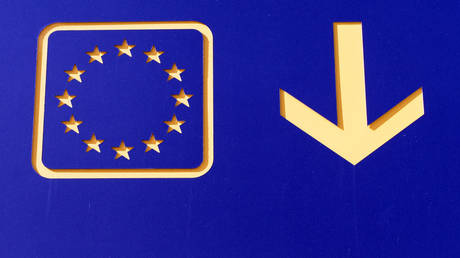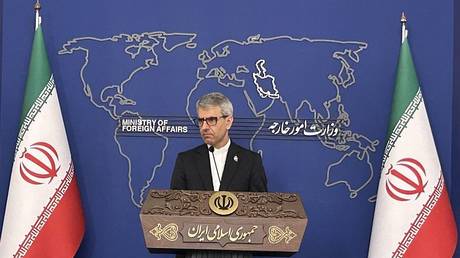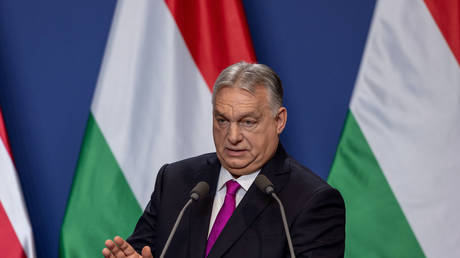
Romania deserves passport-free travel on account of aid to Ukraine, its prime minister has said
The continued Austrian veto on Romania’s participation in the Schengen Area is a “profound injustice” and Bucharest is considering taking Vienna to court if this goes on, Romanian Prime Minister Marcel Ciolacu has said.
The Schengen arrangement allows citizens of EU member states to travel freely around the bloc. Though the European Commission concluded in 2011 that both Romania and Bulgaria met the conditions to join the Schengen Area, they have languished outside for a dozen years since due to vetos by Austria and the Netherlands, respectively.
“It’s Romania that [has]shouldered the bulk of the transit of Ukrainian exports,” Ciolacu said in an interview with Bloomberg, published on Tuesday. “It’s a necessity for Europe to have Romania and Bulgaria in Schengen.”
Ciolacu argued that the border controls have caused “billions of euros” in losses and days-long delays in transporting supplies to and from Ukraine. He accused Austria – which is not a NATO member – of benefiting from Romania’s membership in the US-led bloc, while harming Bucharest with its continued “unjustified” veto on Schengen accession.
“It’s very hard for me to accept that Austria benefits from the European Sky Shield initiative even though it’s a neutral country, while Romania allocates 2.5% of its GDP for defense,” Ciolacu told Bloomberg.
Ciolacu has tried multiple avenues of pressure on Austria, from leveraging a legal dispute over a Black Sea gas field to considering a lawsuit before the European Court of Justice.
Spain, which currently holds the six-month rotating presidency of the EU, has reportedly promised to bring up the Schengen issue at the meeting of the Justice and Home Affairs Council (JHA), a gathering of EU interior ministers, scheduled for December 5.
So far, Austria has refused to budge. Expanding the Schengen Area “is not currently possible,” Chancellor Karl Nehammer said last month, after meeting with his Bulgarian counterpart Nikolai Denkov. “It’s not a position against Romania or Bulgaria, and I want to emphasize that. It’s a matter of security.”




